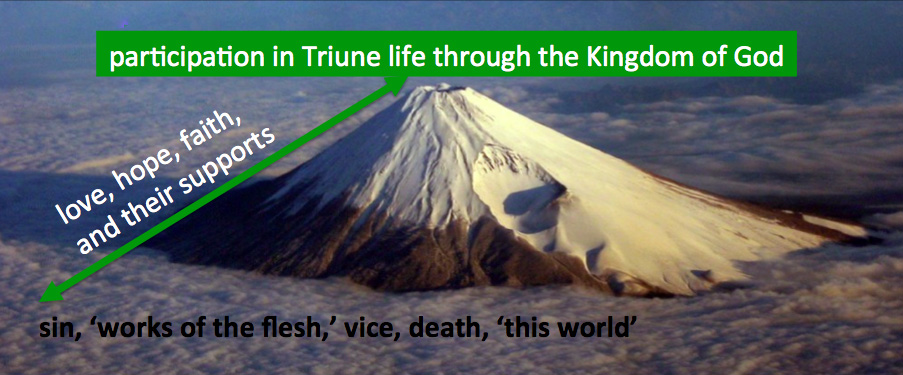The Kingdom's history involves
rebellion: 'the fall' of 'the world' into helpless alienation and depravity.
anticipation: patriarchal promises and protections.
preparation: Israel's purpose, frustrated being, and accumulating insights.
inauguration: Jesus' birth and baptism.
invasion: Jesus' ministry, whose acts are 'signs.'
invitation: proclamation of the gospel of its approach.
migration: sinners' trusting response, justification, and discipleship.
exaltation: Jesus' passion, resurrection, ascension, session (goodness merits).
formation: sanctification (reforming, transforming) in church fellowship (goodness results).
mission: further invasions, tribulations, migrations (goodness spreads).
glorification: Jesus' final parousia or 'appearing' (goodness returns).
compensation: judgment, Kingdom inheritance and disinheritance (goodness gets).
consummation: eternal life of lasting love, presence, service, and blessing (goodness expresses).
enjoying, naming, exploring, and pursuing it.
